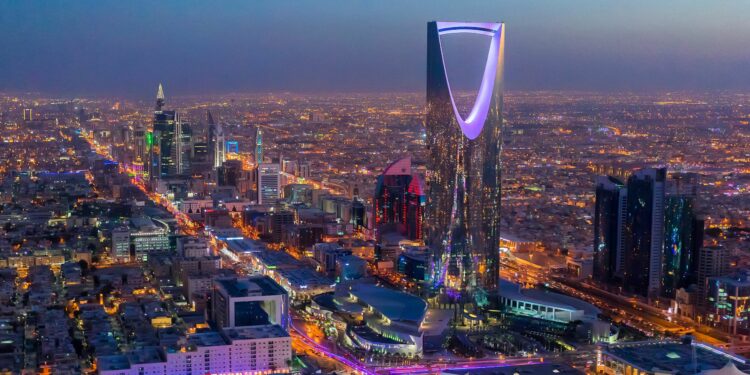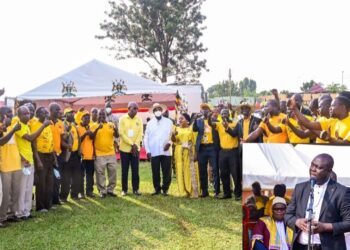On a recent flight to Entebbe, I met a sizeable number of travelers who were, by their conversations, Ugandans returning from some Middle Eastern countries where they are deployed as largely domestic workers. Many were returning home I think either for Christmas or their break after working for two years in the Arabian deserts.
They were excited to be returning to their motherland. Before boarding in Doha where they were connecting from other parts of the Middle East, they called relatives who were to pick them once we landed at Entebbe. They spoke to each other very loudly. Their experiences, the type of bosses they had, who they wanted to see first once they are in Uganda, what they wanted to do and some who they wanted to fight etc.
Unlike the flights from Entebbe to the Middle East, where female domestic workers dress in abayas that are of the same color and design, walk in line and politely as if they are about to receive the holy communion, this time they were on their own. There was no leader giving them instructions. The abayas had been replaced with skinny jeans, leggings and tank tops. Wigs or caps were now their preferred head gear.
There was something about many of them. They didn’t have much regard to other passengers sharing the same boarding area spaces. I thought they were a little bit uncouth. But I was happy that they were returning home at least for their holidays and seeing their family after a few years away.
Uganda, like many countries in Africa and even Asia, is a source of domestic workers for wealthy families in the Middle East. Uganda has a labour cooperation agreement with Saudi Arabia. However, the labour agreement talks largely of domestic workers. Most of the domestic workers don’t have much skills and are therefore not contributing much to Saudi Arabia or learning a lot of skills they can use on their return home.
I actually wondered how many of those domestic workers returning home will be able to do something else? Especially in situations where they won’t be able to return to their previously jobs in the Middle East. The majority will become poor again given the stories we hear of how relatives fleece them of the little money they make.
But there is a great opportunity in Saudi Arabia that the Uganda Ministry of Gender, Labour and Social Development must take advantage of. Saudi Arabia, one of the biggest destinations for Ugandan domestic workers, won the rights to host the 2034 edition of the FIFA World Cup.
Saudi Arabia is going to outdo itself in organizing this event. Of the 15 stadiums required to host the soccer extravaganza, only four exist. They are going to build 11 mega stadiums. They will build hotels, expand the airports, railway and road infrastructure. There is going to be a lot of construction in all the major cities.
Remember, the Saudis want to outdo Qatar that hosted the last world cup. They are also on a mission to take the limelight from Dubai which has seen unprecedented growth with their focus on building massive infrastructure projects that support tourism and business.
Like Qatar, they will need workers to pull off their world cup dream. Skilled workers or those that can easily be skilled. First, workers will be needed at the construction sites. Engineers, masons, surveyors, accountants, welders, project managers and the lot that works on construction sites. Secondly, they will eventually need workers to manage the infrastructure.
We have already seen this in Doha. At the airport, the most common languages among workers are Luganda and Swahili. In hotels, it is the same.
But because we are not very strategic, many of our workers are supervised by Indians and Filipinos. How do we get our people from lowly to middle and high-level jobs? They will need to be skilled. Some of the domestic workers could be moved to work in hotels. They can start as room service attendants and those who become good at it, will eventually become supervisors and managers.
That way they will learn specific highly needed skills that can be very helpful in our tourism and hospitable industry when they eventually get tired of working abroad. Some may even invest here in small bed and breakfasts or restaurants. Engineers we send will gain experience in doing mega infrastructure projects. Welders will gain specific skills that are so needed here. Some may become partners or build businesses in Saudi Arabia just like Jews and the Dutch did in New York.
However, this won’t happen on its own. We must now lobby the Saudis to take on our people beyond domestic work. I understand that there is a lot of argument against youths being shipped out to work abroad but there is absolutely nothing wrong with migration. Everyone is a migrant.
If the jobs are in Saudi Arabia, let Ugandans go. The Ministry of Gender should not miss this golden chance of Saudi Arabia hosting the world cup. They should turn their domestic labour agreement into a general labour agreement to support the 2034 world cup. That way, the conversations of workers at airport lobbies will eventually be different. Happy 2025.
The writer is a communication and visibility consultant. djjuuko@gmail.com
Do you have a story in your community or an opinion to share with us: Email us at editorial@watchdoguganda.com













